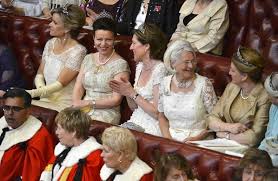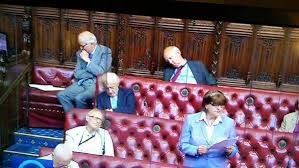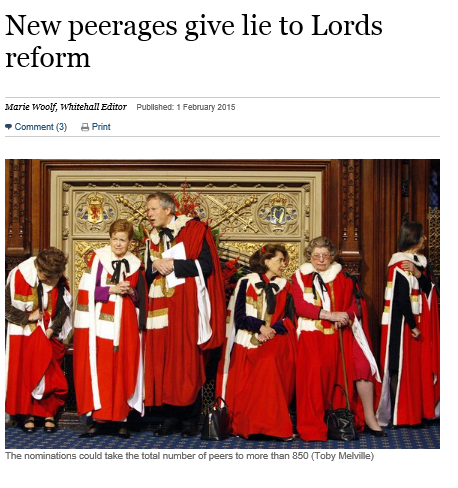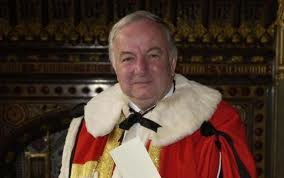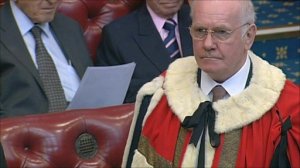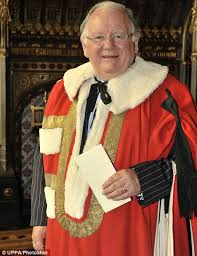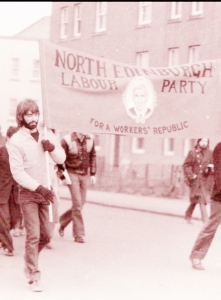Duncan was a powder monkey, one of a team of tunnel miners, employed to bring electricity to the Highlands, north and west of Dingwall, through an immense hydro-electric scheme of dams, tunnels, lochs and power stations. While working at Strathvaich Duncan had gone into a shed to fetch blasting gear when the box of detonators he was holding blew up in his hand and with it the whole shed.

“That Saturday afternoon in June 1911, Oskar Johansson lost all his fair hair. His left eye was ripped out of its socket by the force of the blast. The right hand was severed at the wrist by a shard of rock.”
As I read Henning Mankell’s The Rock Blaster I was pulled up short at his description of an explosion and injuries to the book’s hero, Oskar Johansson, for they were near identical to those suffered by a relative of mine, Duncan MacRae, in the 1950s in an accident not dissimilar to the one suffered by the fictitious Johansson and it got me thinking that Duncan, Duncie, deserved to have his story told as well.
My problem was that Duncan is long dead, he died back in 1991. And that generation of the family has gone and with them first-hand knowledge of the tragedy that befell Duncan that day at Strathvaich. Memories and anecdotes survive about Duncie, his horrific injuries – his left hand was blown off, he lost his left eye, his right eye was damaged and shards of metal and pieces of wire were lodged in his thigh, face and eyelids. He was supplied with a metal hook in place of his missing hand. He was twenty-nine.
One of my earliest memories as a very young child is watching my aunt, a nurse, using tweezers to pluck bits of metal out of Duncan’s studded face. They stood before the farmhouse kitchen window to capture the best light, Duncan stoic throughout scarcely wincing though the pain must have been excruciating.
The Scottish Highlands mythologised and derided in equal measure; dramatic, romantic scenery or barren wilderness of no use to man or beast. But the Highlands aren’t called highlands for nothing. Mountain ranges that trap winter snow that melts into the burns, rivers, lochans and lochs. And rain that isn’t unknown especially towards the west. Water in large quantities described as a wasted resource that should be exploited to produce electric power – hydro power to provide light and heat to Highlanders dependent on Tilley lamps and open fires.
The Conon Valley hydro scheme was one of several planned during WWII and the baby of Tom Johnston, a Labour MP who became Secretary of State for Scotland under Churchill in 1941. Johnston was determined that electric power would be provided to people in the north of Scotland who had no access to the Grid which he regarded as unfair and a deterrent to the Highlands attracting industry and employment. Not everyone agreed.

Proposal after proposal to produce hydro-electricity there was blocked by the House of Lords. The greatest opposition to electrifying the region came from influential wealthy interests who were well-represented in the Lords – sporting estates and coal mine owners (the latter afraid of competition from hydro-electricity). Some objectors cited the loss of the area’s dramatic scenery since dam construction would involve ripping up glens to create new lochs and dams. Land that remained more or less the same for eons would be filled with concrete and bird and animal habitats lost forever. There was less concern for the few people still living in the glens being forced off land generations of their families had inhabited.
A Professor Gruffydd (MP) feared the Highlands would be turned into something akin to a –
“Dublin slum. That has already happened in the rural parts of Scotland and in the Lowlands.”
(27 May 1943, House of Commons)
A habitual critic was MP Sir Gerald Nabarro, a crashing bore with a constituency near Birmingham who took every opportunity to rant in the House of Commons about English taxes having to provide a few Highlanders with electricity. Speaking in July 1958 he had the Strathfarrar scheme in his sights –
“This is not a parochial Scottish issue. This is a matter of an expenditure of £14 million by a nationalised industry.”
One of the bees in his bonnet was his insistence that producing electricity by hydro in the Highlands was far costlier than it would be in England (theoretically) – as if England would agree to such monumental changes to its countryside and ecology and had the physical conditions for such schemes. His complaint that hydro was costlier than coal and nuclear were challenged on grounds that costs of coal and nuclear production kept rising while they fell for hydro power.
In 1958 Conservative and Unionist MP, David Robertson, must have still been wearing his London constituency hat when he switched to Caithness and Sutherland and described the Conon scheme as –
“the unwanted extravagance in the far north”
Supporters of the Conon hydro scheme worried the intended benefits for the Highlands would be diverted south to the central belt to boost industries, incomes and utilities there. This did eventually happen but not before the great hydro venture provided exclusively for the north of Scotland, to the Highlands and islands and the northeast cities of Aberdeen and Dundee.
Under Johnston’s plan the body set up to operate the Conon Hydro scheme, the North of Scotland Hydro-Electric Board (NSHEB), was given temporary ownership of sections of rivers running through the region’s three estates and at the completion of the works the majority of fishing rights were transferred to local angling clubs, but fishing rights on the rivers Conon and Blackwater were sold to private owners (though locals did not always bother going through official channels, including at least one serving police officer who was partial to a salmon from the Blackwater). Three landowners held much of the land between Contin and Ullapool: the Lovat estate, the Fairburn Stirlings and Spencer Nairns of Struy. They were concerned about intrusions onto their land and loss of revenue from fishing and shooting.
With little infrastructure beyond Contin about 160 publicly-funded new roads were constructed so lorries and materials could get into the glens and straths and on completion of the scheme there was a fair amount of anger when some roads were then handed over to the estates as their private property.
Tom Johnston was always aware that business interests outside the Highlands would be eyeing up the scheme’s potential money-making opportunities so he ensured the NSHEB was independent and had control over its own finances in order that Scottish people and businesses would benefit first and foremost and lucrative contracts would not be picked off by bigger English competitors. In 1943 a bill to bring light to the Highlands eventually made it through parliament. The whole scheme was phased in three parts; each requiring a parliamentary act.
And so crofts, houses, roads, tracks, bridges, burns, plants from trees to tiny flowering species and the insects, birds and animals they provided for were forever lost beneath concrete and water. Six dams at Glascarnoch, Vaich, Luichart, Meig, Torrachilty and Orrin and six power stations at Achanalt, Grudie Bridge, Mossford, Luichart, Orrin and Torrachilty along with new lochs at Fannich and Luichart were built in 350 square miles of Ross-shire. Rivers were diverted. Land was dug out. Land was raised. Millennia of rock blasted out of the earth. Part of the Dingwall to Kyle of Lochalsh railway line was submerged and rerouted.
Such a huge undertaking required labour. Lots and lots of men and a few women were hired. Many were local – lorries picked men up (including recently demobbed soldiers and former prisoners of war still in the area) from around Strathpeffer, Dingwall, the Black Isle and miles beyond very early in the day and transported them along winding single-track roads to the building sites and start of usually 12-hour shifts, sometimes longer depending on the job that day. Outside work, summer and winter. Labourers flocked in from around Scotland, Ireland and around Europe. The initial involvement of politicians and planners, men in velour-collared coats and Homburg hats, gave way to men in donkey jackets and tackety boots.
Workers who were not local lived in camps that might comprise ex-war Nissan huts or forestry commission cabins previously occupied by Canadian lumberjacks stationed in Scotland during WWII. Through once silent straths and glens save for the cry of eagles and trickle of burns burst the relentless din of industry – explosions, drilling, excavating and hammering.
Before the coming of the Conon Hydro scheme Duncan ran a mobile shop. His cousin, Don, remembers –
“He had a little Ford van, BGA 555, in which he used to sell fish, fruit and vegetables starting at Brahan P.OW. camp and going up the West Coast nearly up to Ullapool calling at all the crofts along the way. That wee van was an Aladdin’s cave for me. When we stopped to eat, I would have an Arbroath smokie with a choice of Irn Bru or American Creme Soda to wash it down.”
Don was much younger than Duncan and he recalled getting a hurl to Loch Luichart on the crossbar of Duncan’s bike to poach fish with an ‘otter’ (a sort of wooden kite with baited lines that floated across the water). A few miles beyond Loch Luichart lies Loch Vaich and it’s here Duncan was employed as a ‘powder monkey’ handling explosives to blast a tunnel through the rocky landscape so that water from a dam built at Vaich could flow into Loch Glascarnoch.
The ambitious project succeeded enabling hundreds of thousands of Scots easy access to electricity. Before the Conon complex only 1 out of 14 farms and 1 in 100 crofts had electricity. By the late-fifties the vast majority were linked up. Areas most difficult to connect such as the western isles were provided with calor gas in the interim.

Mrs MacLean hay-making at her croft near Elphin with poles bringing electricity in the background.
One ambition for electrification was it would attract industries to the north but that never really materialised. However, having electricity at the flick of a switch was overwhelmingly welcomed by the majority of people in the north who could largely dispense with paraffin lamps and local industries such as farming and boat building benefitted greatly from the availability of electrical power for operating machinery.
A decade on from the transformation of the Highlands Tom Johnston’s early concerns remained valid. The nationalised and autonomous North of Scotland Hydro-Electric Board was always under threat but it wasn’t until Thatcher in 1989 that the real damage was done when the Board and its sister in the south of Scotland were privatised as Scottish Hydro Electric plc and Scottish Power plc, freeing these companies to sell their electricity anywhere in the UK – and charge the folk of the straths and glens and everywhere else in Scotland more for their home-produced electricity than consumers of it in the south of England. And so it has remained to this day.
For his devastating injuries; the loss of one eye, one hand, metal shards embedded into his body, his personal and working life devastated, Duncan received £12,000 not the £15,000 his solicitors sued the civil engineering company Reed and Mallik for. Still, it was a considerable sum in 1958 but for a young man with his whole live in front of him paltry compensation. Duncan was invariably upbeat and smiley, a kind and fun man but he must have suffered terrible torment over what his future could have been.

I only managed to find one very brief mention of his pay-out, not the accident itself, in newspapers and couldn’t trace his damages case at Edinburgh’s Court of Session (Common law was altered in an 1958 Act to introduce discretionary powers that would allow courts to include interest on damages awards calculated from a date earlier than the decree). Then something odd happened – the name Macrae began to pop up on my computer screen alongside other compensation cases in Scottish courts – Macrae v Reed and Mallik Ltd 1961 SC 68, 74. Lots of claims for personal injury compensation referred to Duncan’s case, including Tommy Sheridan’s appeal for interest on damages he won from News Group Newspapers in 2018 on grounds the pursuer was being deprived of his money through no fault of his own. Duncan’s solicitors had appealed his compensation but in 1961 the court decided greater discretion should be available to the court over the 1958 judgement leaving pursuers of damages back at square one.
However, my attempt to obtain access to the court papers have been stymied and I’ve been told the record of Duncan’s case is closed under section 38 of the Freedom of Information Scotland Act. Closed until 2061! I may put in a Freedom of Information request but am not confident that will be any more successful.
Duncan’s future life was tragically blighted by the accident but he was not alone. Many men suffered life changing injuries and several died carrying out their work on the hydro dams to bring electricity into Scottish homes, farms and businesses. With none of the plant machinery available today, the Conon scheme was achieved through hard, exhausting labour, often in freezing weather conditions. Men were crushed, buried, drowned and blown up and most are long forgotten except by their families – these are the men in boiler suits and donkey jackets while those men involved who wore velour collar coats and Homburg hats have their names recorded for posterity.

Duncan’s cousin recalled the man he’d loved –
“So you can see how much he meant to me and imagine how I felt about the accident and then how I admired his long battle to get back to normality. Who needs Superman when there is Duncan?”
He describes Duncan as “that fine fellow” who “brought a lot of happiness to a lot of people.” I remember Duncan. He was indeed a fine fellow with a constant smile and his good humour sure did bring happiness to old and young. This blog is for Duncan.

Further reading – The Dam Builders, Power from the Glens by Jim Miller.
Isolation Shepherd by Iain R. Thomson.



